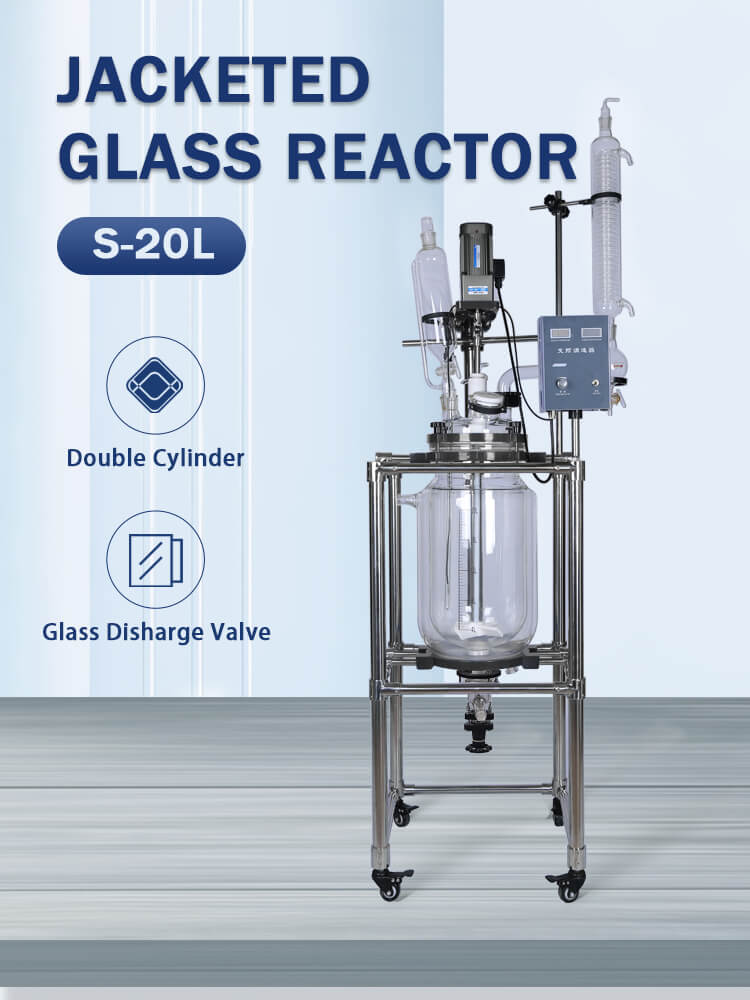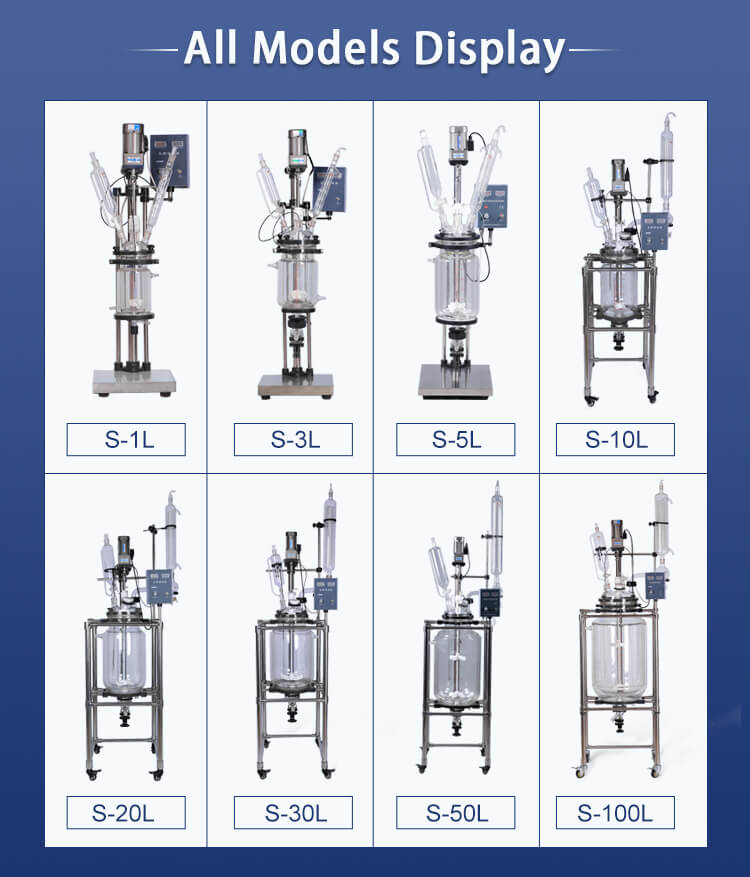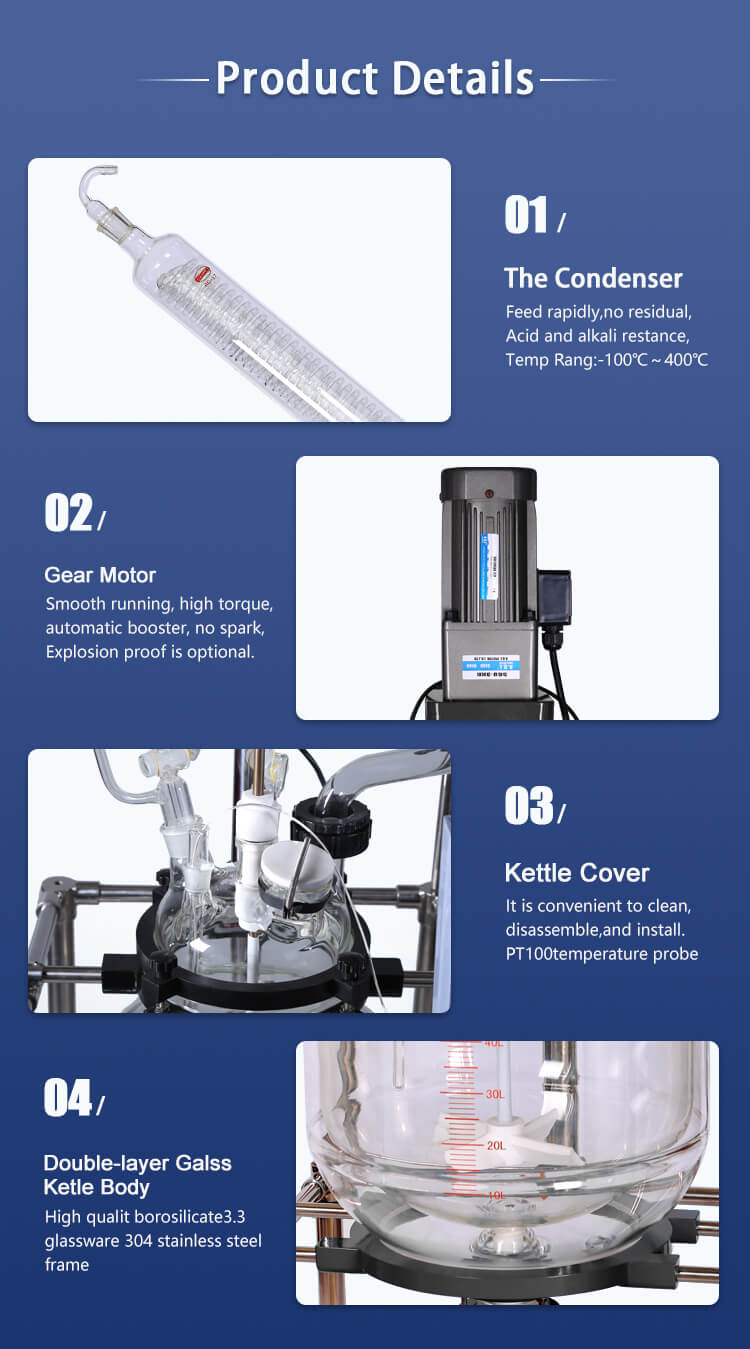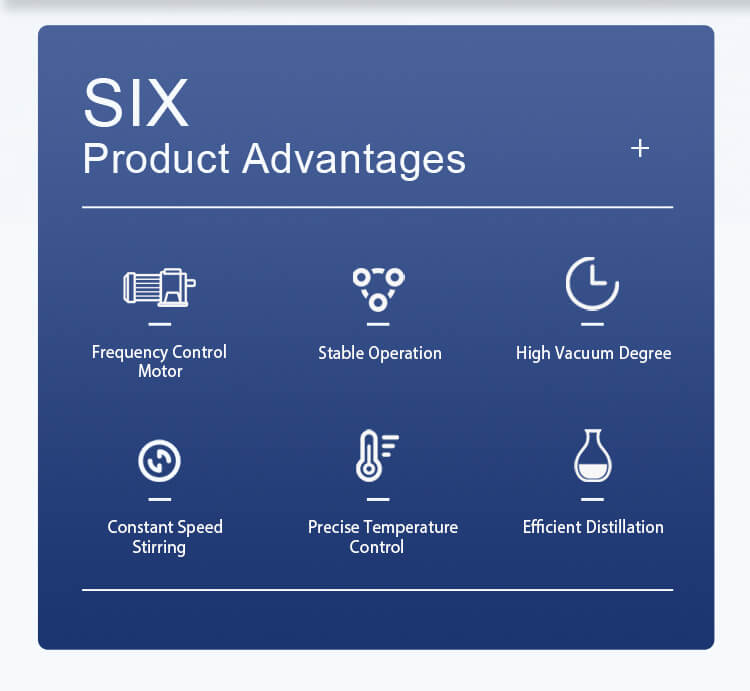Borosilicate Glass Reactor
Reactors play a vital role in chemical processing and manufacturing. A reactor is a vessel used to contain chemical reactions. The construction material of the reactor is of great importance, as it must be able to withstand high temperatures and pressures, as well as the harsh chemical environments of the process. Borosilicate glass is a popular choice of material for reactors due to its excellent chemical and physical properties. In this article, we will take a comprehensive look at 100l glass reactor.

Properties of Borosilicate Glass
Borosilicate glass is a type of glass that contains boron oxide, which gives it exceptional properties, including:
1. High Thermal Resistance: Borosilicate glass can withstand high temperatures without cracking or shattering. It has a low coefficient of thermal expansion, which means it expands and contracts minimally with temperature changes.
2. Chemical Resistance: Borosilicate glass is resistant to most chemicals, including acids, bases, and organic solvents. It does not react with or absorb chemicals, making it an ideal material for chemical processing and manufacturing.
3. Transparency: Borosilicate glass is transparent, allowing for easy observation of the contents of the reactor during the reaction process.
4. Durability: Borosilicate glass is durable and has a long lifespan. It is resistant to scratches and wear, making it an ideal material for laboratory and industrial settings.
Borosilicate Glass Reactors
Borosilicate glass reactors are vessels made of borosilicate glass used for chemical reactions. They are commonly used in laboratory and industrial settings for research, development, and production of various chemical compounds. Borosilicate glass reactors are popular due to their unique properties and advantages over other materials.
Advantages of Borosilicate Glass Reactors
1. High Chemical Resistance: Borosilicate glass reactors are resistant to most chemicals, making them ideal for processing various chemicals.
2. Transparency: Borosilicate glass reactors are transparent, allowing for easy observation of the reaction process.
3. Thermal Resistance: Borosilicate glass reactors can withstand high temperatures without cracking or shattering.
4. Easy to Clean: Borosilicate glass reactors are easy to clean due to their smooth surface and resistance to scratches and wear.
5. Cost-Effective: Borosilicate glass reactors are relatively cost-effective compared to other materials used for reactors.
Types of Borosilicate Glass Reactors
1. Jacketed Glass Reactors: Jacketed glass reactors are the most commonly used type of borosilicate glass reactor. They consist of two layers of glass, an inner layer for containing the reaction mixture and an outer layer for temperature control. The space between the two layers is filled with a cooling or heating fluid to regulate the temperature of the reaction mixture.
2. Single-Layer Glass Reactors: Single-layer glass reactors are made of a single layer of borosilicate glass. They are less expensive than jacketed glass reactors and are commonly used for simple reactions that do not require precise temperature control.
3. Triple-Layer Glass Reactors: Triple-layer glass reactors consist of three layers of borosilicate glass. The inner layer contains the reaction mixture, the middle layer is filled with a cooling or heating fluid, and the outer layer provides insulation.
4. Cylindrical Glass Reactors: Cylindrical glass reactors are vessels with a cylindrical shape used for chemical reactions. They are commonly used in laboratory settings for research and development.
5. Spherical Glass Reactors: Spherical glass reactors are vessels with a spherical shape used for chemical reactions. They are commonly used in industrial settings for production and large-scale chemical reactions.

Applications of Borosilicate Glass Reactors
1. Chemical Synthesis: Borosilicate glass reactors are used in chemical synthesis to produce various chemical compounds. They are used in the pharmaceutical industry to synthesize drugs, in the food industry to produce additives, and in the cosmetic industry to manufacture beauty products.
2. Material Testing: Borosilicate glass reactors are used for material testing to evaluate the physical and chemical properties of materials. They are used in the manufacturing industry to test the durability and strength of materials.
3. Environmental Testing: Borosilicate glass reactors are used for environmental testing to evaluate the effects of different chemicals on the environment. They are used in the agricultural industry to test the effects of pesticides and fertilizers on crops and in the mining industry to test the effects of mining chemicals on the environment.
4. Polymerization: Borosilicate glass reactors are used in polymerization reactions to produce polymers. They are used in the manufacturing industry to produce plastics, rubber, and other polymers.
5. Fermentation: Borosilicate glass reactors are used in fermentation reactions to produce various products such as beer, wine, and yogurt. They are commonly used in the food and beverage industry.
Maintenance and Safety of Borosilicate Glass Reactors
Maintenance and safety are critical when using borosilicate glass reactors. Here are some maintenance and safety tips:
1. Regular Cleaning: Borosilicate glass reactors should be cleaned regularly to prevent contamination and buildup of chemicals.
2. Proper Storage: Borosilicate glass reactors should be stored in a dry and cool place to prevent damage.
3. Proper Handling: Borosilicate glass reactors should be handled carefully to prevent cracking or shattering.
4. Use Protective Gear: When handling borosilicate glass reactors, protective gear such as gloves and goggles should be worn to prevent injury.
5. Temperature Control: Borosilicate glass reactors should be carefully monitored to ensure proper temperature control to prevent cracking or shattering.

Borosilicate glass reactors are versatile vessels used in a variety of chemical reactions. They offer excellent thermal and chemical resistance, transparency, durability, and are cost-effective. They come in various types, including jacketed, single-layer, triple-layer, cylindrical, and spherical glass reactors. They are used in chemical synthesis, material testing, environmental testing, polymerization, and fermentation. Proper maintenance and safety are critical when using borosilicate glass reactors to prevent damage and injury.



